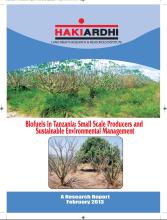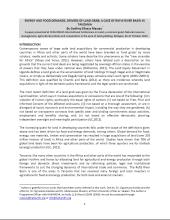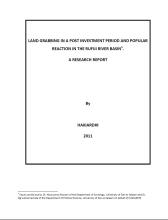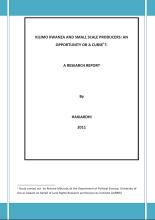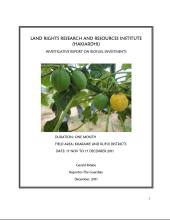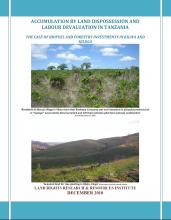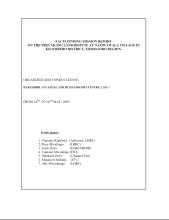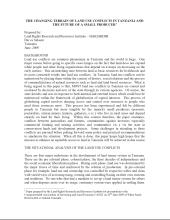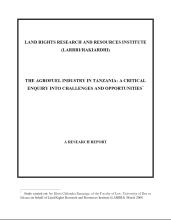Land Library
Bienvenue dans la bibliothèque du Land Portal. Explorez notre vaste collection de ressources en libre accès (plus de 74 000), comprenant des rapports, des articles scientifiques, des articles de recherche, des publications évaluées par des pairs, des documents juridiques, des vidéos et bien plus encore.
/ library resources
Showing items 1 through 9 of 9.The purpose of this study was to assess the bio-energy sector in Tanzania and to critically inquire the threats, benefits and opportunities to smallscale producers and sustainable environment management.
Contemporary waves of large scale land acquisitions for commercial production in developing countries in Africa and other parts of the world have been branded as ‘land grabs’ by many scholars, media and activists.
What has been the reaction of the rural producers and other land holders over these demands and actual land acquisitions? What does their reactions means in relation to ongoing land grabbing? While these questions are important this study was motivated by two major concerns.
This study sought to follow up the implementation of the Kilimo Kwanza initiative with the view to establish reliable facts on its significance to small-scale producers, mainly peasants and pastoralists.
Increasing investments in biofuel production follow a shift of energy demand,in developed nations from fossil fuel to bio energyto run machines. Consequently, there has is an accelerated influx of investors from the Europe, Asia and Americain quest for productive and fertile lands.
New commercial pressures on land and its impact on small producers is one of the major issues being discussed in both national and international arenas.
This is the report relating to the facts finding mission conducted by HAKIARDHI and LHRC as an intervention in response to an outcry from the villagers at Namwawala village in Kilombero district, Morogoro region, owing to the alleged plan of the government to take possession of the village land f
Land use conflicts are common phenomena in Tanzania and the world at large. One major reason before going to specific cases hinges on the fact that land does not expand while people and other living organizations that depend on it keeps on increasing on the early surface.
Biofuel development in Tanzania places at stake 4 highly strategic national resources: land, water, forests and labour, and for generations to come.

